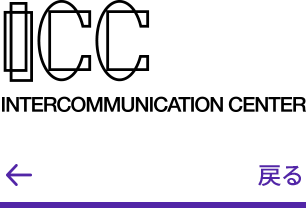
|

|

|
| Preface |

|
This library does not require a
good intention such as to seriously read a book, study, or gain knowledge.
This is because all the books in this library are illegible. Some
books are filled with odd characters that no one knows while others
are lined with rows of characters that may be legible but make no
sense. All you have to do is to relax, take a look, and smile or frown.
This library is not for knowledge, but for spiritual freedom.
Jorge Luis Borges' literature has captivated readers with its penetrating
vision. He provides a telescopic view of dimly lit Earth, as though
seen from a distance through the darkness of space. His vision is
so sharp that it penetrates the caves of the heart. He takes his readers
on an adventure into spiritual darkness that modern society has kept
concealed.
Borges wrote a short story titled "The Library of Babel." In this
work, Borges compares space to a library that spreads infinitely.
Like a beehive, this library has an infinite number of hexagonal reading
rooms that are stacked vertically and horizontally. Never will anyone
find an exit from this library. Librarians live and work here for
the rest of their lives.
In essence, this library is a model of our world. This library holds
all the possible combinations of 20 and some symbols, or essentially
all that can be expressed by all the languages. It is said that there
is no problem for which there is not a solution somewhere in this
library.
Babel is a story of confusion with languages written in The Book of
Genesis in the Old Testament. Jahwe, who became upset with the arrogance
of man who began building a tower in an attempt to reach heaven, descended
to earth to disrupt the language. From then on, man had more than
one language, and experienced difficulties in communicating with one
another.
Since The Library of Babel contains every conceivable information,
it is unorganized to the point of reaching the state of Babel. In
another one of his works called "Book of Sand," Borges writes about
a single book that can replace all other books, a book with infinite
number of pages that constitute the world itself. The pages in this
book are randomly numbered so the reader never reaches the end of
the book. This may be Borges' way of saying that the world is infinite
and is essentially the same as Babel.
The more knowledge and information we gain, the more we become entrapped
in a labyrinth like Babel. Borges' works expand the horizons of our
creativity and take us from libraries and books to even problems with
modern media such as databases and the World Wide Web. While this
exhibition does not directly trace Borges' works, it is an attempt
to see in the contemporary society, which can be compared to a Babel
of information, how such media as characters, books, and images function
or fail to function. This exhibition focuses, however, on works by
artists whose intention is to view the tradition of characters and
writings from slightly different angles. Is it not the spirit of humor
that gives us the courage not to accept a matter as a given, but to
take a slightly off-the-track approach? (For example, Chinese characters,
which are hieroglyphic characters, sometimes reveal playfulness beyond
their required functions. As opposed to the Western black humor, it
may be regarded as "yellow humor.")
While The Library of Babel is not a practical library or a reservoir
of knowledge, it is our hope that visitors will find it a library
of enjoyable information, where they can find a niche of playfulness
in a stuffy world. |
|
|
|
